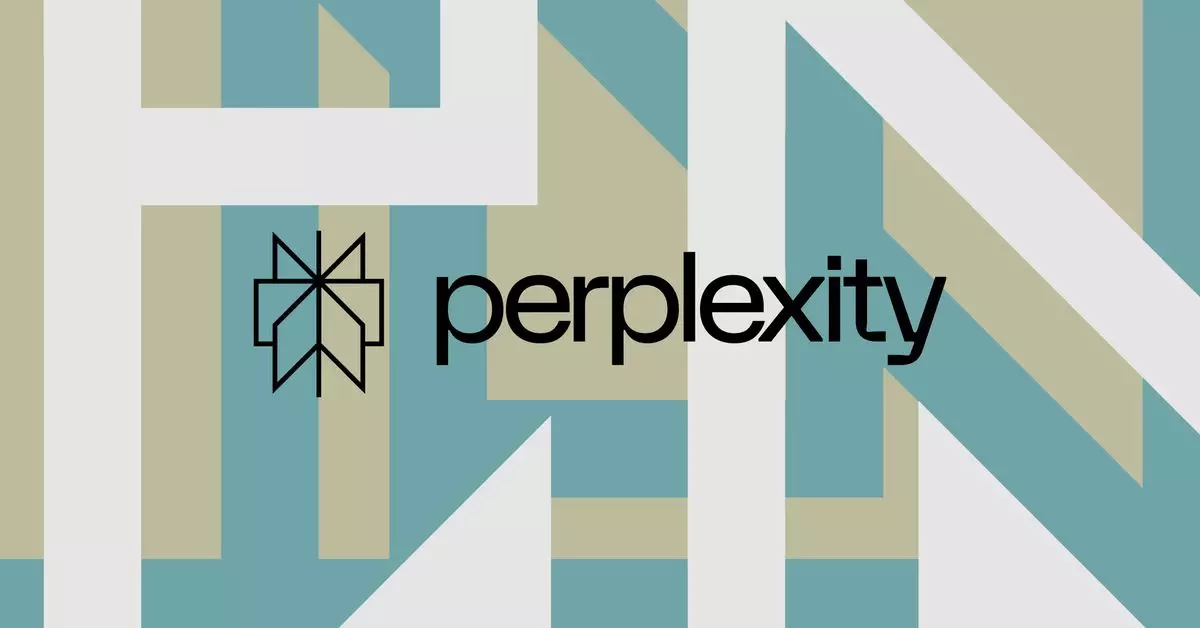The rapid advancement of artificial intelligence (AI) technology has introduced unprecedented opportunities and challenges in various sectors, particularly in journalism and content creation. A recent legal battle between the AI startup Perplexity and News Corp has highlighted the contentious relationship between emerging technologies and established media organizations. This conflict raises critical questions about the ownership of information, the ethics of AI-generated content, and the future of journalism in an increasingly digital landscape.
Perplexity, known for its AI-powered search engine capable of delivering concise information, has faced legal scrutiny from News Corp, a conglomerate that oversees prominent publications such as The Wall Street Journal and the New York Post. The crux of the lawsuit lies in allegations that Perplexity scraped and reproduced copyrighted content without the permission of the original publishers. Accusations extend beyond mere content replication; News Corp claims that Perplexity’s operation resembles an extensive infringement of intellectual property rights, threatening the livelihoods of journalists and content creators.
This legal confrontation represents a broader and ongoing debate in the tech industry concerning the ethics of data usage and the implications of AI technologies. While Perplexity argues that its search engine practices fall within the realm of publicly accessible information, it simultaneously grapples with the nuances of copyright laws, which protect the creative expression of ideas rather than the ideas themselves.
In its defense, Perplexity contends that traditional media companies, including News Corp, exhibit resistant attitudes toward innovative technologies that have the potential to enhance and democratize access to information. The company accuses media conglomerates of wanting to monopolize publicly available facts and impose barriers to information dissemination, which can stifle creativity and innovation. Perplexity believes that the lawsuit symbolizes an adversarial relationship between media organizations and tech firms, which, rather than fostering collaboration, fosters division and hostility.
Moreover, Perplexity points to its attempts to establish partnerships with various publications as evidence of its commitment to a symbiotic relationship between AI technology and traditional journalism. Their revenue-sharing program, rolled out in conjunction with well-known media outlets such as Time and Der Spiegel, aims to create avenues for mutual benefit rather than conflict. By emphasizing these partnerships, Perplexity seeks to position itself as a facilitator of information rather than a villain in the existing media ecosystem.
In stark contrast, News Corp maintains its position that Perplexity’s practices constitute systemic abuse of intellectual property rights. The company argues that Perplexity misuses the creative efforts of journalists and undermines the financial viability of media businesses by presenting repurposed content as substitutes for original reporting. In their view, such actions exacerbate the challenges faced by traditional media entities, which are already navigating the complexities of a digital-first world.
News Corp has made it clear through statements from its leadership that they will pursue legal action against not only Perplexity but any AI companies perceived to be encroaching upon intellectual property rights. Their commitment to protect the rights of journalists and uphold the integrity of creative work underscores the heightened tensions between traditional media and tech startups.
The outcome of this legal battle could set a significant precedent, potentially impacting how AI technologies interact with copyrighted material in the future. As AI systems become more sophisticated, the question of content ownership looms larger than ever. Will AI companies need to re-think their data sourcing strategies, or does this signal a need for new legislative frameworks to govern AI and content creation?
Furthermore, the discord between traditional media and AI startups raises broader questions about the role of journalism in society. The necessity for journalists to adapt and innovate alongside technological advancements becomes paramount in a landscape where information is increasingly commodified and redistributed.
Ultimately, the allegations levelled against Perplexity shine a light on the urgent need for dialogue between technology and media sectors. Building a future where AI complements journalism rather than undermines it will require cooperation, understanding, and, most importantly, respect for the rights and efforts of those who create original content. The circumstances may be complex, but the future of journalism deserves a collaborative approach that respects both innovation and intellectual property.

